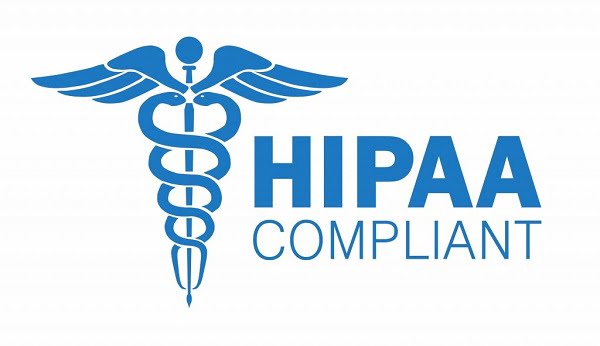HIPAA Compliance for Mobile Devices: Best Practices and Risks
Mobile devices have become so prevalent in this digital age that it is not surprising that they also have considerable usage in the healthcare sector. Consequently, this sector has been afflicted with dangers that were otherwise present elsewhere. These threats include cyber threats, such as data breaches, theft, and mal-usage of data.
Moreover, these threats can be articulated as a result of malware assaults, unsecured Wi-Fi networks, unintended data leaks, and outdated operating systems. The healthcare institution is supposed to protect the patient’s private information, regardless of the medical device used. It must implement cybersecurity solutions that follow the cybersecurity compliance requirements set in place to deter any threat actors.

The Health Insurance Portability and Accountability Act
HIPAA compliance is a regulatory compliance program designed to protect the private information of average consumers, in this case, patients. It contains private medical information like the patient’s name, address, and social security number, as well as personal information like e-prescriptions, X-ray or MRI findings, blood test results, etc.
According to the US Department of Health and Human Services, all medical facilities that deal with PHI, or protected health information, employ entirely automated procedures. This covers electronic health records (EHR), automated physician order entry, and other programs. Although each of these technologically based methods might increase flexibility and effectiveness, they might also jeopardize the security of patient data.
Risk of Mobile Devices for HIPAA Compliance
Here are a few common risks associated with mobile devices for HIPAA compliance.
SMS Messages
Texting colleagues about problems at work is very convenient. On the other hand, since texting containing patient information is categorized as ePHI, the messages you send should be encrypted both during transmission and while being stored on your phone. This doesn’t adhere to HIPAA rules.
Mobile Camera
In the medical field, pictures are useful. It is called electronically protected health information, or ePHI if you have X-ray or ECG images on your camera roll that contain recognizable patient information. This could lead to a breach of patient data. As a result, a HIPAA violation occurred.
Wi-Fi Security Flaws
Always avoid looking at patient information while using public Wi-Fi. Anyone can use the network because there is no password requirement. Although it might seem ideal to check a coworker’s email while seated in a public space with free Wi-Fi, doing so could be against HIPAA if patient data is sent from the email server to your phone.
HIPAA Best Practices for Mobile Phones
The following are the best practices for mobile phones in terms of HIPAA compliance:
Using Work Profiles
One of the main dangers of a technology that relies on human error is the accidental or intentional compromise of ePHI. Devices may have a work profile that contains ePHI to stop accidental or intentional content leaks.
Work profiles enable the virtual isolation of sensitive content and restrict access to it to the programs and functionalities that are defined inside the work profile, preventing ePHI from being made available to other programs and functionalities on the device. Device compliance may be continuously checked, and access to non-compliant devices may be denied.
Utilize Longer Passcodes
The right tools can quickly break a four-digit password. The solution to this issue is to choose a longer password (for example, a 15-character password with a special character and alphanumeric characters) and turn on the setting that deletes your device’s data after many unsuccessful password attempts.
Mobile device passcodes should be at least 8 characters long, contain both alphanumeric and special characters, and not contain any words from the dictionary. By making a small adjustment to the device setup, users of Android and iOS devices can use these complex alphanumeric passcodes instead of the customary four-digit pin.
Implement Mobile Encryption
Most mobile encryption services are less secure and dependable than those for other devices because most mobile devices don’t support the strongest encryption. HIPAA mandates that healthcare organizations establish an encryption and decryption system for digitally protected health information.
Every electronic device that stores or transmits PHI, such as a mobile phone, laptop, desktop, flash drive, hard drive, etc., must be encrypted. Additionally, if you keep your backups on a mobile device’s hard drive, ensure they are encrypted.
Managing Misplaced Devices
The risk of lost technology for healthcare organizations is very high. The data on the device is highly confidential, and a leak could have serious consequences. You can ensure that a device is remotely locked or erased to give critical data the highest level of security possible if it is lost. When Lost Mode is turned on, the device will lock down.
Many companies provide a mobile portal with a lost mode that can be activated and deactivated directly from the portal. Even if the device is muted, a remote ring from within the portal may be activated if the device cannot play a sound.
Regular Sessions of Employee Training
Regular training and policy enforcement are essential to HIPAA mobile security because they help employees remember organizational standards. Make sure your business doesn’t develop policies, then ignore them.
A sizable portion of the risk is determined by the configuration of your mobile environment and the methods by which your employees access critical data. Your staff is almost certainly accessing sensitive data insecurely if you don’t have mobile device policies.
Conclusion
Numerous healthcare organizations worldwide lose sensitive data daily due to their devices’ inadequate security. An efficient device management solution can help you meet cybersecurity compliance requirements.
Take the necessary precautions to protect your company’s hardware and data. Clinicians and other healthcare professionals may give their patients better care if they handle all the details of device administration.